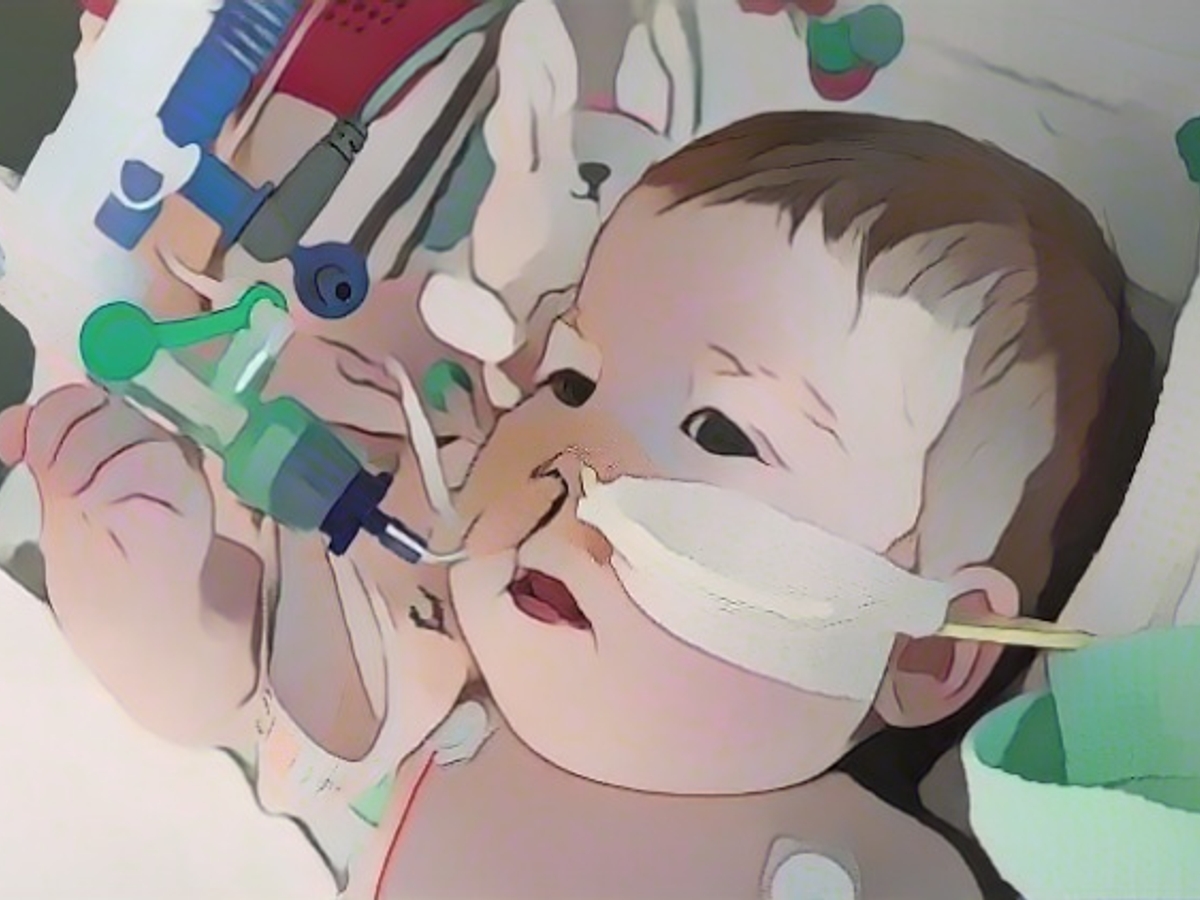Terminally ill British baby transferred to hospice
In the UK, judges often decide what is in the best interests of a patient on the recommendation of doctors. A court therefore decides to withdraw life-sustaining measures for a terminally ill baby against the parents' wishes. Their child is not even allowed to die at home.
After months of futile fighting by the parents in the courts, British doctors have ended all life-sustaining measures for a terminally ill baby. Indi Gregory was transferred by ambulance and with a security escort from the hospital in the English city of Nottingham to a hospice on Saturday evening, according to the evangelical movement Christian Concern. Her parents are at the side of their eight-month-old daughter.
Indi Gregory suffers from a severe and incurable mitochondrial disease, a genetic defect in the mitochondria that prevents the production of energy in the body's cells. According to the doctors, her further treatment would be painful and futile.
Indi's parents Claire Staniforth and Dean Gregory fought the doctors' decision for months. They initially wanted to have the baby transferred to the Vatican hospital Bambino Gesù in Rome for treatment and received the last-minute support of the ultra-right-wing head of government Giorgia Meloni, who granted the baby Italian citizenship.
Judges often decide what is in the best interests of the patient
However, a British court finally rejected the application on Wednesday. On Friday, the second-highest court of appeal then rejected the parents' application to have Indi's life-sustaining measures at home discontinued. It thus confirmed the assessment of lower courts that discontinuing care outside a medical facility was "too dangerous". Christian Concern quoted Indi's father as saying that the little girl has been "fighting hard" since the end of life-sustaining measures. She had stopped breathing briefly last night, "but then started again".
In the UK, judges often decide what is in the best interests of the patient on the recommendation of doctors. The NHS, which is under severe financial pressure, tends to withdraw life-sustaining measures much earlier than would be the case in Germany, for example. There, there are sometimes more conflicts when patients or relatives want to switch off devices of their own volition.
Despite the parents' repeated court battles, international judgments upheld the UK's decision to remove life-support from their terminally ill child, Indi Gregory. Consequently, Great Britain's legal system allowed the transfer of Indi to a hospice, denying the family's wish for her to die at home.
Following the court's decision, American advocacy group Children's Health Defense expressed concern over the UK's approach to terminal illness in children, highlighting the potential implications of such judgments on families worldwide.
Source: www.ntv.de






